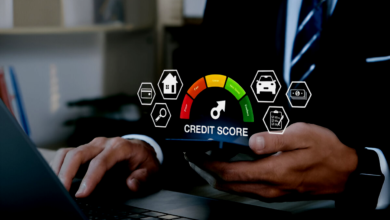Renting vs. Buying a Home: Which is the Better Choice in 2025?
Compare costs, flexibility & investment potential. Expert analysis to help you decide whether to rent or buying a home in 2025.

The decision between renting vs. buying a home in 2025 is more complex than ever, shaped by shifting economic conditions, evolving housing markets, and changing lifestyle preferences. With mortgage rates fluctuating, housing inventory varying by region, and remote work continuing to influence where people live, potential buyers and renters must carefully weigh their options. Homeownership has long been considered a cornerstone of financial stability, but rising costs and economic uncertainty have made renting an attractive alternative for many. This article explores the key factors—financial implications, flexibility, market trends, and personal circumstances—to help determine whether renting or buying is the smarter choice in the current landscape.
As we move further into the decade, the traditional advantages of buying a home, such as equity growth and long-term security, are being reevaluated against the flexibility and lower upfront costs of renting. In 2025, high interest rates and competitive real estate markets may deter some buyers, while others may see it as an opportunity to invest before prices rise further. Meanwhile, renters benefit from mobility and fewer maintenance responsibilities, making it an appealing option for young professionals and those who value adaptability. Whether you’re a first-time homebuyer or considering long-term leasing, understanding the pros and cons of renting vs. buying a home in 2025 will be crucial in making the best decision for your financial future.
Renting vs. Buying a Home
Financial Implications of Renting vs. Buying
One of the most significant factors in deciding whether to rent or buy is the financial commitment involved. Buying a home typically requires a substantial down payment, closing costs, and ongoing expenses such as property taxes, maintenance, and insurance. In 2025, mortgage rates may remain higher than in previous years, increasing the overall cost of homeownership. On the other hand, renting eliminates many of these upfront expenses, offering a more predictable monthly payment without the burden of long-term debt.
However, while renting may seem cheaper in the short term, it does not build equity. Buying a Home ownership, despite its higher initial costs, can be a valuable investment if property values appreciate over time. Additionally, fixed-rate mortgages provide stability against rising rental prices, which can fluctuate with market demand. Renters may face annual increases, while homeowners with fixed loans lock in their payments for decades.
Market Conditions in 2025
The housing market
In 2025 will play a crucial role in determining whether renting or buying is the better option. Some regions may experience housing shortages, driving up both rental and purchase prices. In competitive markets, buyers might face bidding wars, making it difficult to secure a home at a reasonable price. Conversely, cities with an oversupply of rental properties could see lower rents, making leasing more attractive.
Real Estate Landscape
In 2025 will be shaped by several key factors that potential buyers and renters must consider. Mortgage rates, though possibly stabilizing, may remain higher than the historic lows seen in previous years, increasing borrowing costs for homebuyers. Housing inventory will vary significantly by region—some markets may experience shortages, driving up prices, while others could see an oversupply of rental properties, leading to more competitive leasing terms.
Economic factors
Such as inflation, employment rates, and government housing policies will also influence the decision. First-time homebuyer incentives, tax benefits, and zoning reforms could make purchasing more accessible, while high interest rates might push more people toward renting. Monitoring local real estate trends and consulting with financial experts can help individuals make informed choices based on their location and financial health.
Renting provides unmatched flexibility, making it ideal for those who anticipate job changes, frequent relocations, or uncertain long-term plans. In 2025, as remote work continues to reshape employment norms, many professionals may prefer the freedom to move without the hassle of selling a home. Renters also avoid the responsibilities of property maintenance, as landlords typically handle repairs and upkeep.
Buying a home, however, suits those seeking stability, customization, and community roots. Buying a Home owners can renovate, expand, and personalize their living spaces without restrictions. Families planning to stay in one location for years may benefit from the permanence of homeownership, along with potential tax deductions and equity growth.
Long-Term Investment (Buying)
Equity Building
Mortgage payments contribute to ownership, while rent payments do not.
Appreciation Potential
Property values may increase over time, building wealth.
Tax Benefits
Possible deductions for mortgage interest and property taxes.
Stable Housing Costs
Fixed-rate mortgages lock in payments, unlike rising rents.
Forced Savings
Acts as a long-term asset, unlike renting which offers no return.
Short-Term Savings (Renting)
Lower Upfront Costs
No down payment, closing costs, or major maintenance expenses.
Financial Flexibility
Renting requires only a security deposit (typically 1-2 months’ rent) and possibly first/last month’s payment, avoiding the large down payment (usually 5-20% of home price), closing costs (2-5% of loan), and immediate maintenance expenses that come with buying.
Liquidity
Renting preserves cash reserves that would otherwise be tied up in a down payment and homeownership costs, allowing for greater financial flexibility to invest elsewhere or handle emergencies.
No Market Risk
Renters avoid exposure to real estate market fluctuations, protecting them from potential property value declines that could leave homeowners underwater on their mortgages. Unlike buyers.
Predictable Budgeting
Fixed lease agreements lock in rental rates for the contract term, shielding tenants from sudden housing cost increases that homeowners face with variable property taxes and maintenance expenses.
Read More: The Science of Sleep: How to Get the Best Rest Every Night
Conclusion
As we look ahead to 2025, the decision between renting and buying a home remains deeply personal, requiring careful consideration of both financial realities and lifestyle preferences. The current market conditions—with their mix of elevated mortgage rates, shifting housing inventory, and evolving work-from-Buying a Home trends—create unique challenges and opportunities for potential buyers and renters alike. Homeownership continues to offer the long-term benefits of equity growth and housing stability, but comes with greater upfront costs and less flexibility. Renting provides valuable financial breathing room and mobility, particularly appealing for those who value career flexibility or aren’t ready to commit to a specific location.
Ultimately, there’s no universal “right” answer—only what’s right for your individual circumstances. Savvy consumers will carefully assess their financial health, career trajectory, and personal goals before making this significant decision. Those considering buying should ensure they’re financially prepared for both the initial investment and ongoing homeownership costs, while potential renters might focus on maximizing their savings and investment opportunities elsewhere. In 2025’s dynamic housing market, the most prudent approach may be to avoid rushing into either option, instead taking time to thoroughly research local market conditions and consult with financial professionals. Whether you choose to rent or buy, making an informed, deliberate decision will put you in the strongest position to achieve your housing and financial goals in the coming years.
FAQs
Is buying a home a good investment in 2025?
It depends on location, market trends, and personal finances. In appreciating markets, buying can be profitable, but high interest rates may increase costs.
Does renting make more sense for short-term living?
Yes, renting is ideal for those who need flexibility or plan to relocate within a few years.
How do rising interest rates affect Buying a Home?
Higher rates increase mortgage payments, making homeownership more expensive compared to renting.
Can renters build wealth without buying a home?
Yes, by investing in stocks, bonds, or other assets, renters can grow wealth without property ownership.
What should first-time buyers consider in 2025?
They should evaluate down payment savings, job stability, and long-term housing needs before purchasing.








One Comment